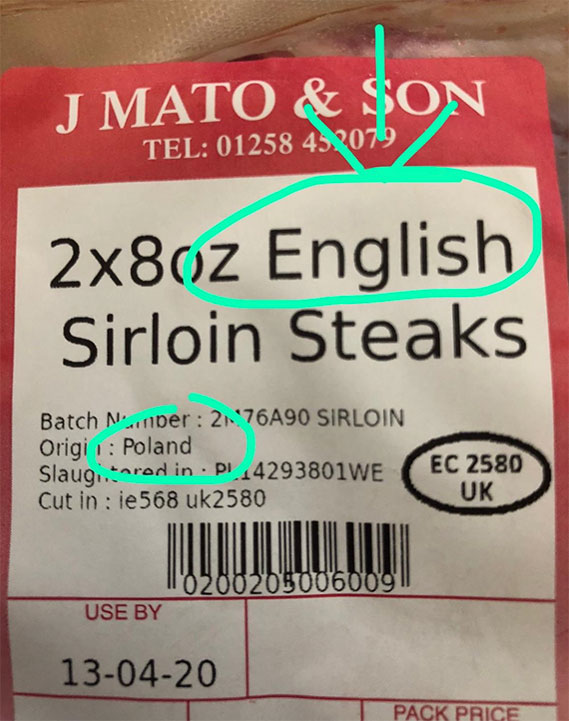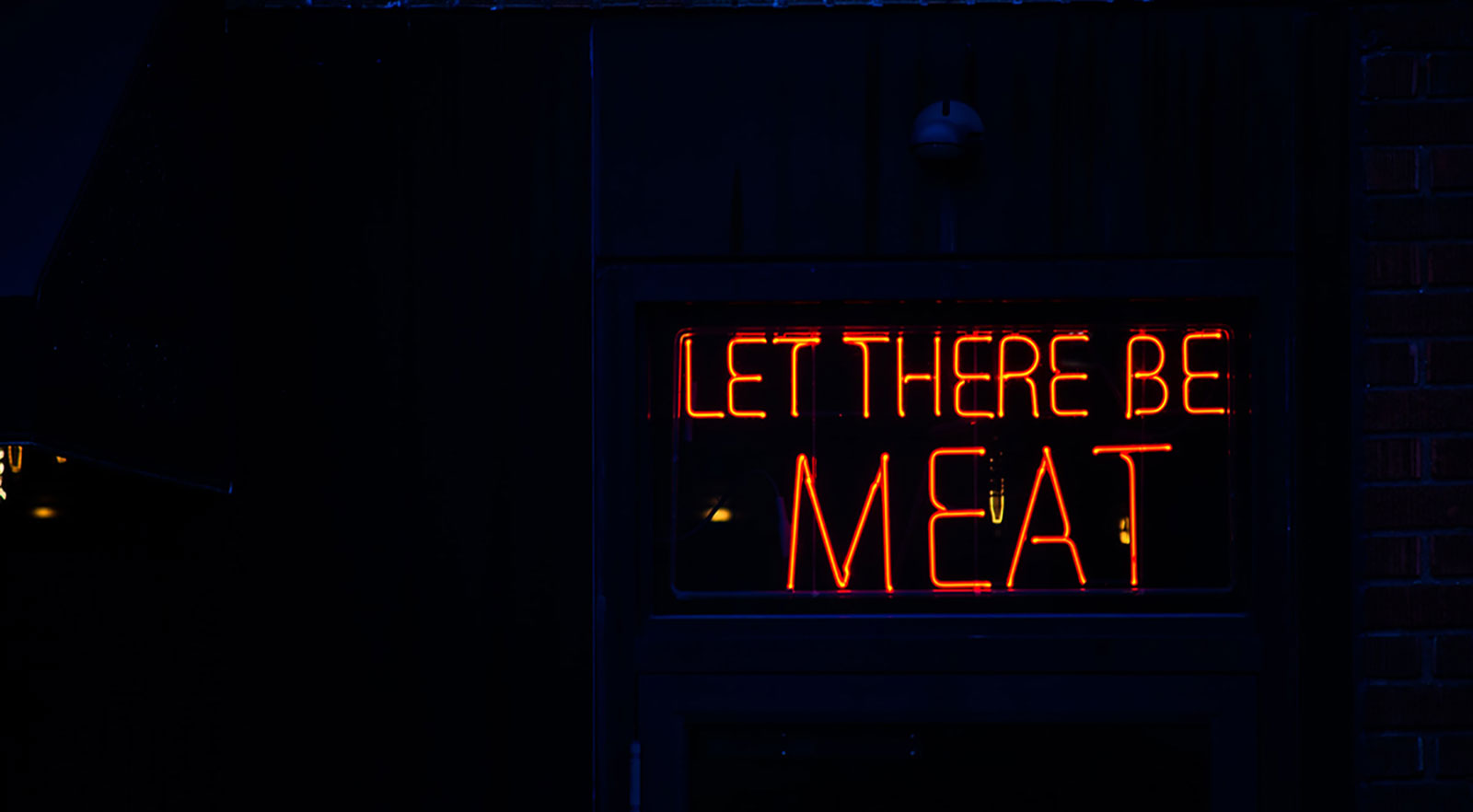Lowering Our Standards But At What Cost?
Hormone-treated beef and chlorine-washing chicken are currently banned in the UK. Both are legal in the US.
Now that the UK government is in the middle of passing a bill through parliament that reduces the standards that imported foods have to meet, this is the time to start helping everyone understand how complex all of this is and how we are working to make sure that you can make fully informed decisions based on accurate and trustworthy information.
Exactly what the new regulations are likely to be is difficult to predict as it is still not law, however, we can illustrate how opaque the current regulations are.
The image below shows meat that originated in Poland being labelled as English sirloin steak.

This is not illegal in any way so long as the meat has gone through some kind of ‘value added’ process, which could include something as simple as packing it for sale.
While the UK was a member of the EU, there was the protection of minimum animal welfare standards to ensure that even imported meats were of at least reasonable quality.
Now that the UK has left the EU, the risk of meat of all kinds that is produced to standards far lower than we are used to in the UK, appearing in our food supply chain is increasingly real.
There is already public outcry at the threat of intensively farmed meat, hormone enriched beef, chlorine washed chicken and a growing list of other things, most Britons do not want in their food supply chain.
In 2018 and 2019 Populus, on behalf of Which? asked thousands of UK adults what they thought about food standards and labelling.
93% said food standards should be maintained after Brexit
72% said food with lower standards shouldn’t be available at all
79% were uncomfortable eating beef produced using growth hormones
72% were concerned about eating chicken treated with chlorine
If the current labelling laws are left in place, it will become extremely difficult for any of us to tell where the food in the package comes from, how it was reared, has it been injected with hormones, was it fed on rainforest soya and more.
“The UK is in the unique position of designing its trade policy from scratch. To be successful, it needs to have the public’s trust and support.” Caroline Normand, Head of Policy at Which?
At nuUnlimited, our provenance toolkit is designed specifically to enable businesses at every stage on food production to share data and demonstrate that.
A provenance history is a powerful foundation on which to build more value in the eyes of consumers of a product. We help ensure that producers of quality products can demonstrate their commitment to high standards, quality ingredients and business ethics – all of which are increasingly important to modern consumers.
“Let there be Meat” Photograph courtesy of DJ Johnson for Unsplash

